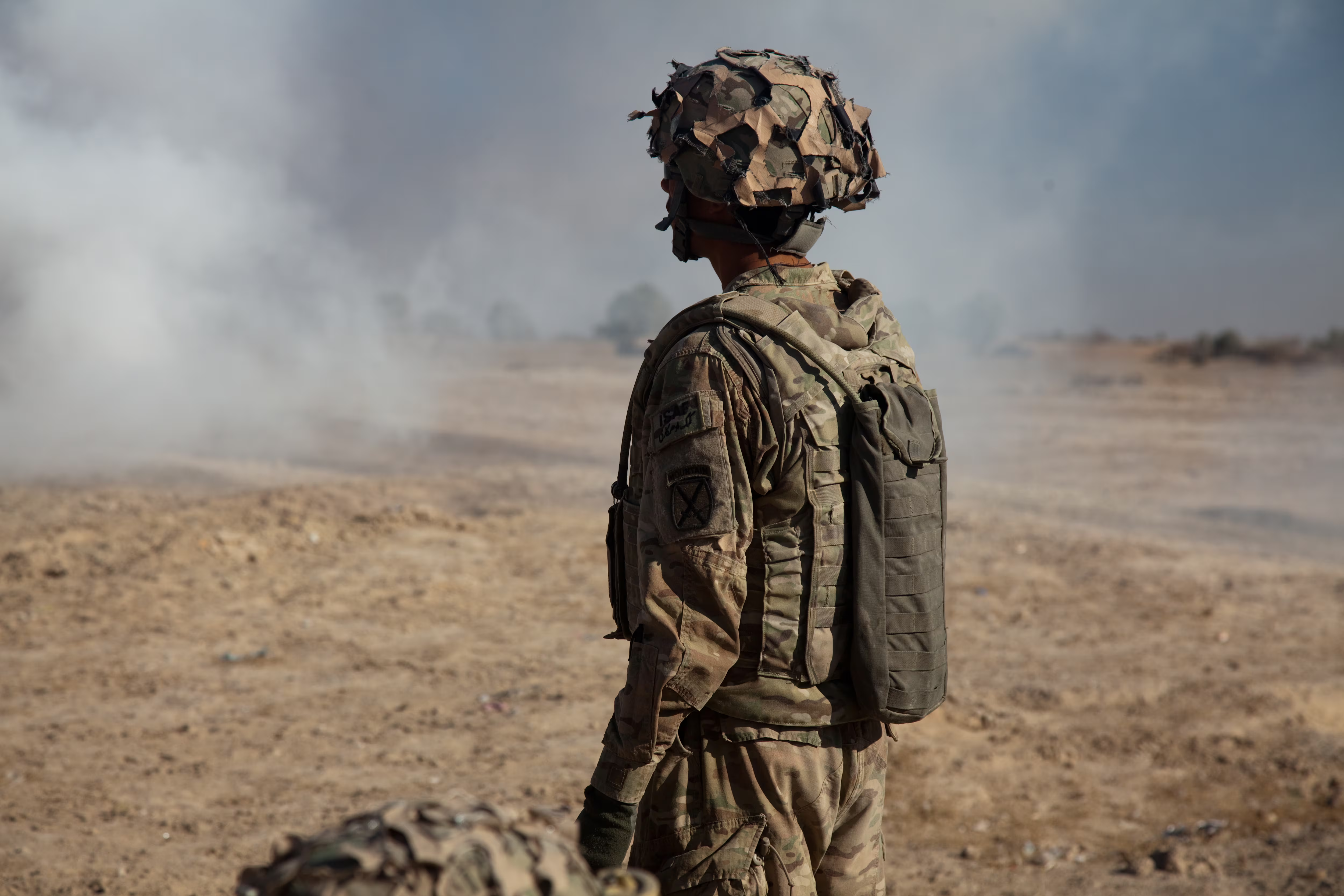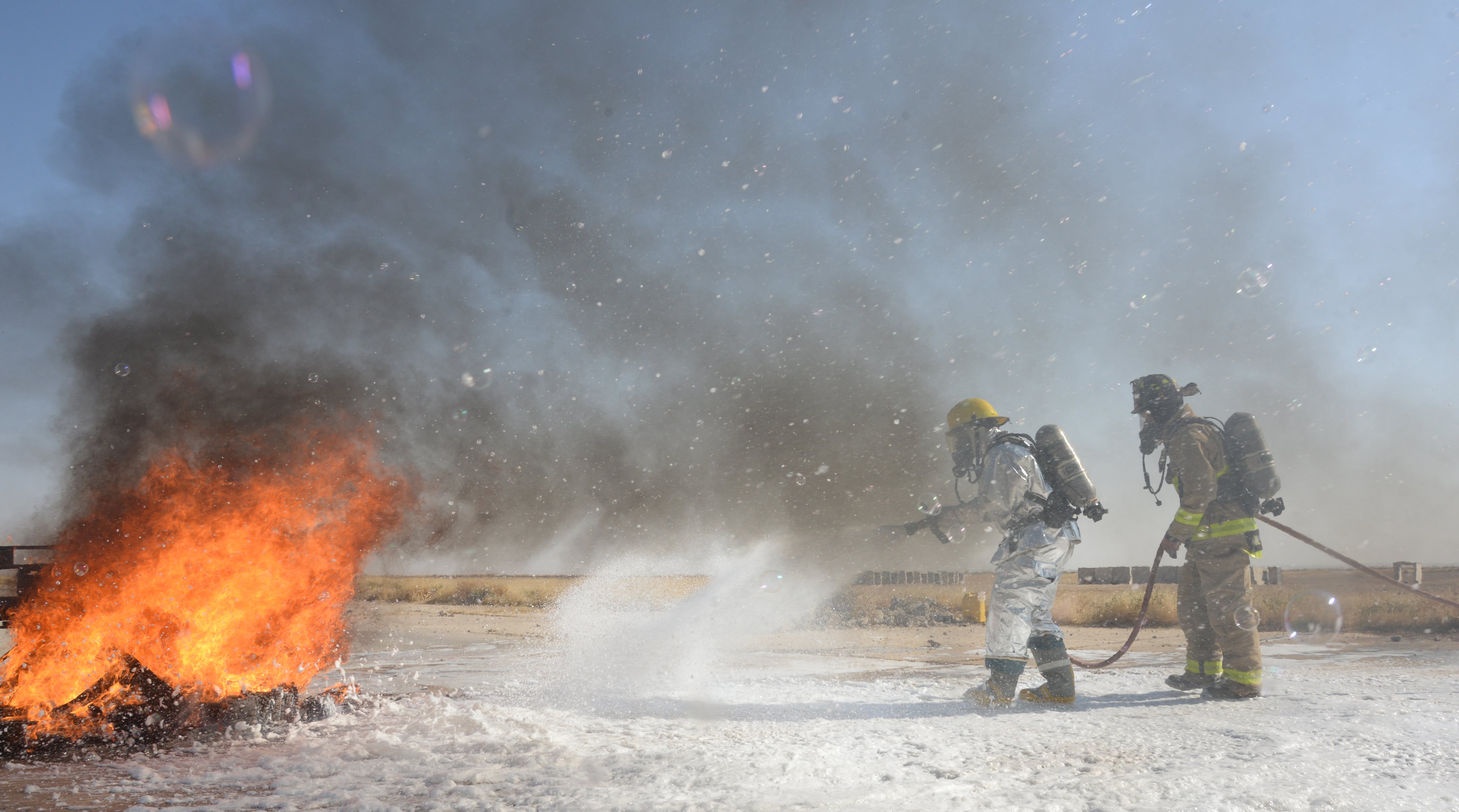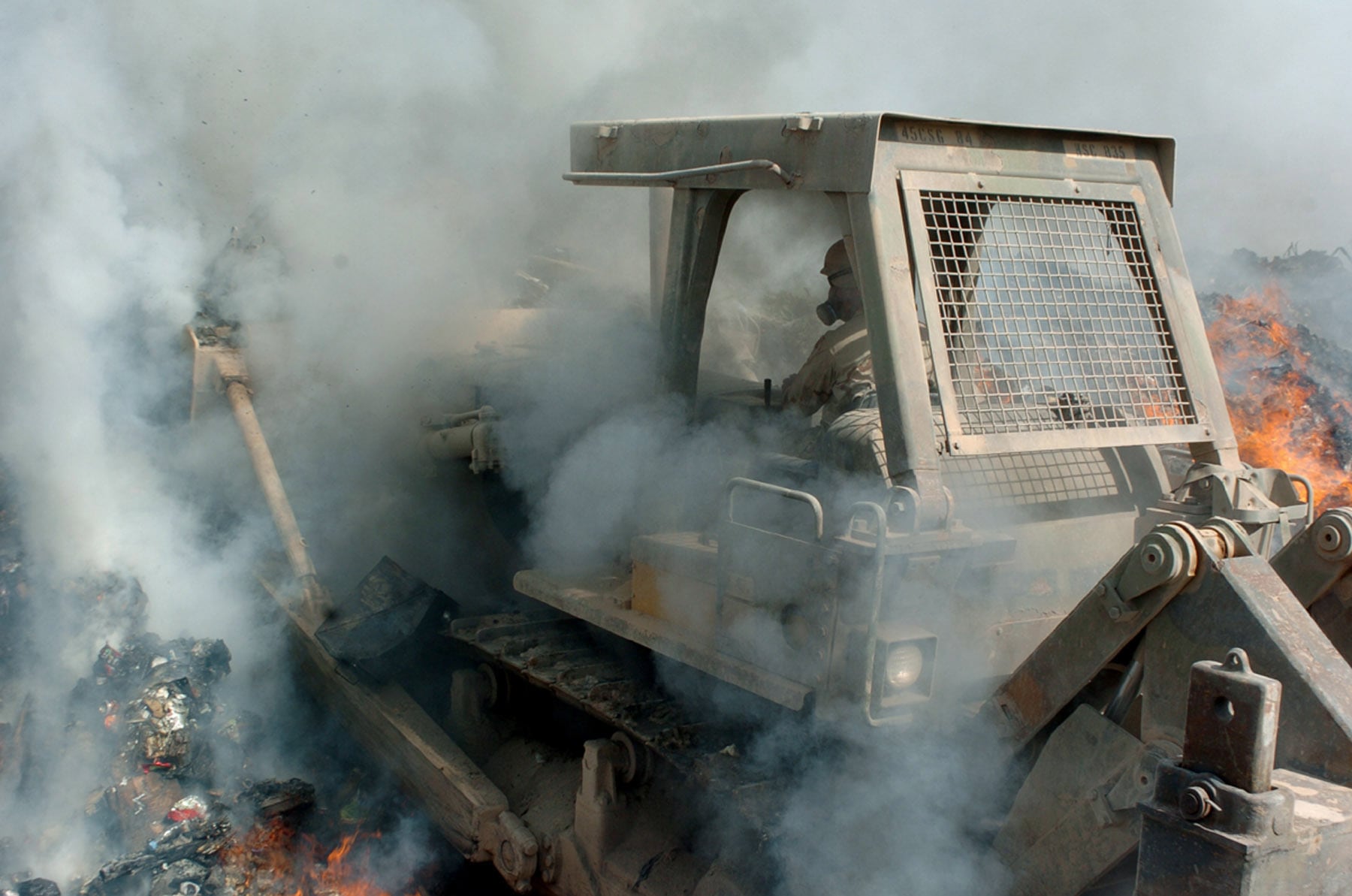The Department of Veterans Affairs will launch a major research initiative in fiscal 2021 on military environmental exposures and their connection to diseases in veterans and their offspring, the VA’s chief of research development said Wednesday.
VA researchers have been speaking with veterans about the environmental toxins they think encountered on the battlefield and aboard military bases, Rachel Ramoni told attendees at an event in Washington on prostate cancer in veterans.
As a result, VA is in the planning stages for “major investment in toxic exposures” that will “cut across all research at the VA,” she said.
“[Veterans], for good reason, have been irritated with us as an organization because we have not done a lot of work — especially clinical work on — military exposures. … A) I have apologized to them, and B) I have committed that in FY21, we are going to make major investments in toxic exposures,” Ramoni said.
RELATED

According to Romani, VA researchers are reviewing the department’s current research portfolio and speaking with veterans to help determine the focus and scope of future studies. She added that she has spoken with hundreds of veterans, including at least one who convinced her that the research should examine the effects of exposures on service members’ children.
“It’s very hard to hear stories from veterans — the feeling of guilt — one veteran I spoke to, their daughter had a hysterectomy at age 3 wondering if it was because of his service,” Ramoni said.
Ramoni was one of several speakers at a forum hosted by the nonprofit advocacy group ZERO – The End of Prostate Cancer, which is launching a campaign to spread awareness of the prevalence of prostate cancer in veterans and promote research on screening and treatments.
Prostate cancer disproportionately affects veterans — 1 in 5 veterans can expect to develop it in their lifetimes, versus 1 in 9 in the general U.S. population — and is linked to exposure to Agent Orange in Vietnam veterans, but also appears in veterans of other eras.
More than 13,000 veterans are diagnosed each year with prostate cancer, and 489,000 are being treated for the disease, including 16,000 with metastatic prostate cancer, in the Veterans Health Administration, according to the group.
RELATED

While research has shown that cancer rates among veterans declined slightly from 2002 to 2014, many veterans who develop cancer and those diagnosed with debilitating or fatal diseases such as Parkinson’s and amyotrophic lateral sclerosis, or ALS, are left wondering whether environmental exposures contributed to development of their illnesses.
Potential environmental hazards in the combat zones and on U.S. military bases include the burn pits used to destroy waste in Iraq, Afghanistan and elsewhere, nerve agents from abandoned chemical munitions, cleaning solvents, radiation, depleted uranium, lead and heavy metals, synthetic chemicals found in firefighting foams and more.
“It’s an incredibly broad field … in talking to the Gulf War veterans, it’s a dizzying array of potential exposures they may have had and so this is where this needs to be driven by scientists and the veterans working together,” Ramoni said.
Patricia Kime is a senior writer covering military and veterans health care, medicine and personnel issues.





